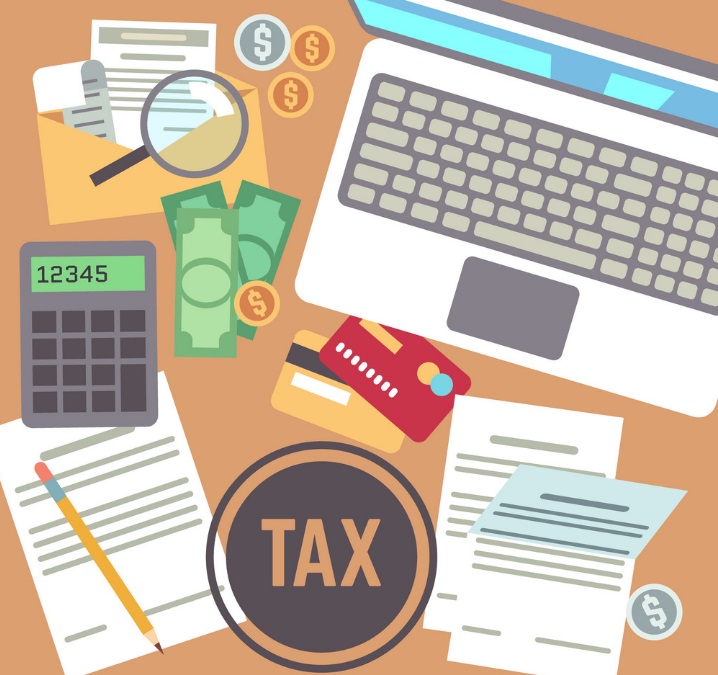Understanding a foreign tax system might not be a cakewalk for most people out there. However, things become easier when you realize that there is no income tax levied on the citizens and residents of UAE ! This is one of the most popular reasons why expats want to settle down with their businesses and careers in Dubai. Follow this article closely to know everything you ever have to know about the income tax situation in Dubai and how it functions.
Quick fact : The UAE does not levy income tax on individuals
[toc]
Introduction to Tax in UAE.
The fact that there is no income tax levied in UAE does not mean that there are no taxes in UAE at all. No, that is not the case. Although expats might not have to pay tax on their direct earnings in Dubai & UAE , some expats have to pay a tax on the same somewhere else in the world i.e. their home country. This implies that their income is taxable in their home country. The Dubai tax system is incredibly favourable for the residents of Dubai. However, that is not the case for people who have moved there for business purposes.
What kinds of income are taxable in UAE?
In the United Arab Emirates, there are some laws that apply centrally to all the Emirates, and there is some liberty that is given to the Emirates to formulate laws themselves. For instance, the double taxation agreement is set by the UAE on the UAE as a whole, but the actual taxes that the residents of each Emirate have to pay may be decided by the Emirates themselves.
In Dubai, however, individuals are not directly taxed on their income. This implies that if you are a resident of Dubai, you are not liable to pay anything to the authorities with regard to the earnings you are making through your business or your job.
However, there are certain caveats to this liberty. Just because you don’t have to pay any taxes to the authorities in Dubai with regard to your income, this does not mean that you are not liable to pay taxes to authorities anywhere else. You might be liable to pay a tax in your home country with respect to the earnings you make while you transact in Dubai. Dodging or not being aware of such rules might attract heavy fines and penalties on you or your business, which might cost more than the taxes themselves. Hence, it is very important to keep that in mind.
How does Dubai handle expenses if there are no taxes?
Since Dubai has a lot of expenses of its own and there is no income tax, it seems reasonable to assume that the Emirate must have another income source. It does. The Emirate of Dubai primarily functions on financial grants from the Central Government and/or the fees charged elsewhere (other than income taxes). Since the residents use various communal facilities provided to them by the country (like roads and pavements), taxes are exacted from the residents to pay for the construction and maintenance of these assets.
What are some of these other taxes that are levied?
Although there is no income tax that is levied on the citizens of Dubai directly, there are a host of other channels through which the government of Dubai exacts its taxes. The main taxes that are paid to the government by the citizens relate to real estate. This tax is applicable to the citizens whenever a sale of a property or the purchase of a property is made. Excise duty that is applicable to the sale of fizzy beverages, energy drinks, and tobacco products also constitute a big amount of the income of the government. There is also a nominal VAT (Value Added Tax) that is applicable to the sale and purchase of goods and services in Dubai. These taxes are a little heavier than they are expected to be. But then, since there is no income tax on the citizens, they are expected to pay a little more to indulge in these luxuries and/or business dealings.
Is there a direct tax on my income at all?
No, the government of Dubai does not levy a direct tax on your income. There is a 0% tax to be paid by you to the government. There are no direct taxes levied on your income or your wealth in Dubai.
Do I have to pay a tax if I am a UAE citizen working elsewhere?
If you are someone who is a legal citizen of Dubai but is working overseas, there are a host of factors that you need to consider. While you may not have to pay taxes in the United Arab Emirates on the income you earn overseas, the tax laws of the country you reside in might apply to you. To find out more about the tax situation in the country you work in, visit the official website of the government, or visit the local immigration center for more details.
What do we mean by the Double Taxation Agreement?
The double taxation treaties are set in place in the United Arab Emirates with other countries so that individuals who are working in one of the Emirates do not have to pay double taxes on their income, that is, both in their home country and in the United Arab Emirates. These treaties have been set up by the United Arab Emirates with other countries. Some of these countries are- India, Guinea, Bulgaria, Cameroon, Canada, China, Rwanda, United Mexican States, Uruguay, Uzbekistan Senegal, Serbia, Macedonia, Luxembourg, Libya, and Finland.
Conclusion
Hence, as you already know, there are no income taxes levied on the citizens of Dubai. Amazing, right? Dubai is a tax-free haven for expats who need to settle in a place where most of their income is not taxed by their government. Hence, for businessmen and officials who need a country where taxes are not strict and not stringent, the Emirate of Dubai in the United Arab Emirates looks like a perfect choice.


